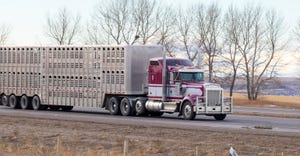Before Senate Agriculture Committee, ag secretary gives insight into problems with dairy margin program, GIPSA rule and FMD vaccine bank.

Dairy farmers are feeling the strain, and the cries for additional help continue to get louder, but Agriculture Secretary Tom Vilsack said the U.S. Department of Agriculture has done as much as Congress has allowed it to.
Vilsack, testifying before the Senate Agriculture Committee on Wednesday, said the agency has already purchased $20 million in cheese products and would have liked to do more. However, he said current Commodity Credit Corp. restrictions limited what USDA can do.
He added that the dairy Margin Protection Program (MPP) has some issues. However, he repeated three times throughout the hearing that had farmers purchased the same protection levels in 2016 as they did in 2014, USDA would have made four times the payments. USDA just issued $11 million in MPP payments, but it could have been $40 million.
Many farmers reduced the level of coverage by just buying catastrophic level in 2015 because they didn’t feel like it made economic sense to pay for higher coverage. However, now that dairy prices have turned lower, producers would have received needed resources if they had invested in higher coverage, Vilsack explained. “We need to maybe do a better job of educating folks on the difference between a payment and insurance system,” he noted.
In speaking about the next farm bill, Vilsack did offer support for a more regionalized fix for MPP that accounts for the different feed costs associated with different regions. He said conceptually, the margin protection program is a good idea, but “it is a national program that does not appreciate the regional differences that exist within the dairy industry.”
GIPSA
Several members also questioned Vilsack about where things stand with the Grain Inspection, Packers & Stockyards Administration (GIPSA) rule protecting the rights of contract farmers. Vilsack said it goes back to concerns farmers had with Pilgrim’s Pride ending contracts years ago.
He did promise that he will follow the administrative rules process and will provide the opportunity to comment on any final proposal the agency finalizes. He said it would not be a memo or guidance that didn’t allow for concerned parties to allow them to read, understand and provide an opportunity to comment on what is included in the final rule.
When in Washington, D.C., last week, more than 130 producers from 20 states urged their senators and representatives to oppose the GIPSA rule, which they said would restrict the buying and selling of livestock. Sen. Joni Ernst (R., Iowa) said in her questioning that the GIPSA rule could cost the pork industry $350 million per year.
FMD bank
In Washington, D.C., the National Pork Producers Council (NPPC) requested that funding be included in the next farm bill for a foot and mouth disease (FMD) vaccine bank. Sen. Joe Donnelly (D., Ind.) asked for Vilsack’s views on the current FMD vaccine bank that is inadequate to provide the quantity necessary to stamp out the disease should it hit the U.S.
Vilsack responded that the current capacity is limited because of where the research is currently done — offshore on Plum Island, N.Y. Concerns have been expressed on the potential to infect the domestic herd with transferring that research to an inland facility within the U.S.
“We’ve been waiting for an industry consensus opinion, and there are still some divisions,” Vilsack said. When the new biosecurity lab in Kansas is ultimately completed, Vilsack said USDA would then be in a position to provide the level of certainty and degree of safety those in the industry seek while doing more research and creating more FMD vaccines more quickly.
About the Author(s)
You May Also Like





